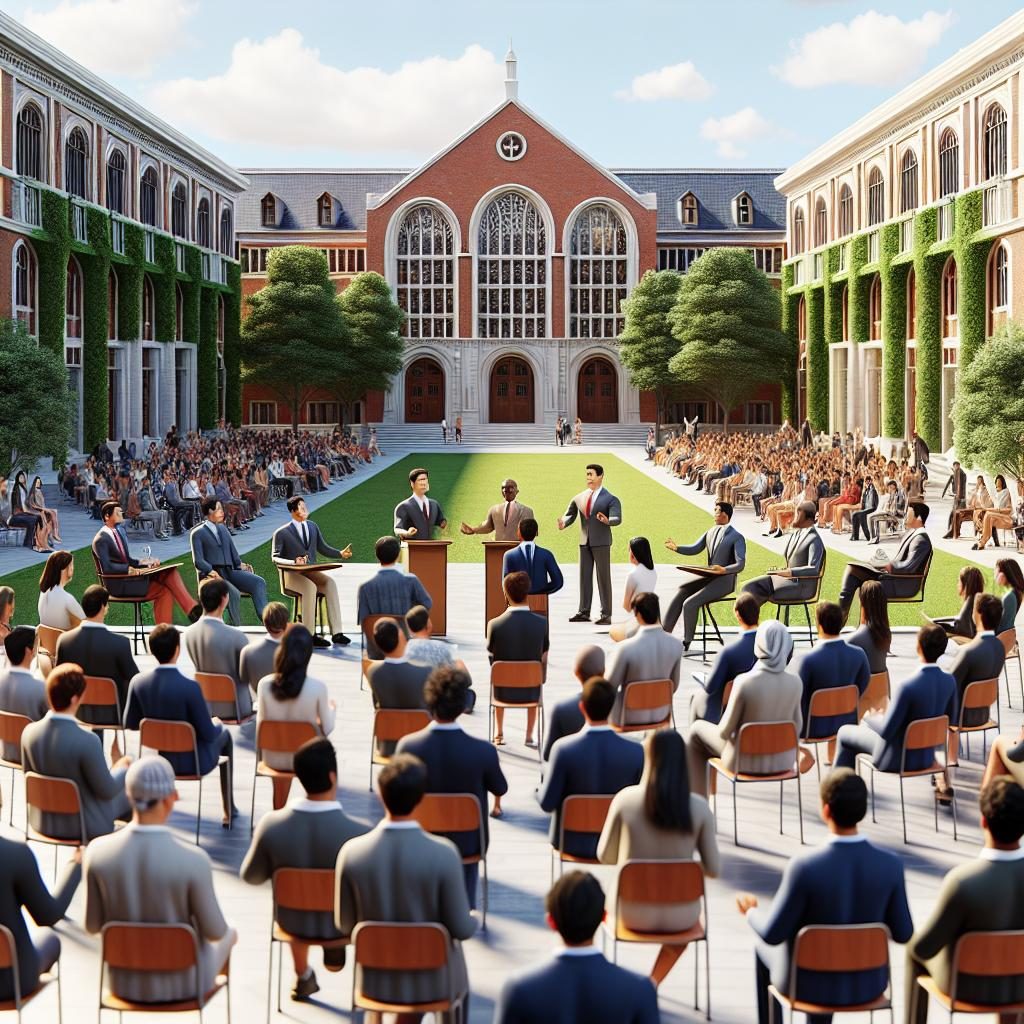Columbia Students Sue USC Over Free Speech Dispute
Columbia, South Carolina—Things have taken quite the turn at the University of South Carolina following a controversial event that sparked backlash from students, staff, and the community. A student group, Uncensored America, is suing the university, claiming their rights to free speech were violated when they were initially denied funding for an event that featured speakers known for their divisive views.
The Roast that Roiled the Campus
This highly publicized roast of Vice President Kamala Harris took place on September 18 and featured two speakers, Gavin McInnes and Milo Yiannopoulos, who have both built reputations for controversial and often hateful rhetoric. McInnes, founder of the Proud Boys, which has been labeled a hate group, remains a polarizing figure. Yiannopoulos, often referred to as the “pop star of hate,” is infamous for his misogynistic, racist, and transphobic statements.
The event, attended by around 180 people, was met outside by approximately 30 protesters who voiced their objections, arguing that this type of speech has no place on college campuses.
The Legal Backlash
Following the uproar that surrounded the event, the student group decided to take a stand. They have filed a lawsuit in federal court claiming that the university’s rejection of their funding request was a direct violation of the First Amendment. According to the lawsuit, USC’s student government cited concerns about the viewpoints of the invited speakers as the reason for denying the funds, which they say goes against university policy that prohibits discrimination based on viewpoints.
The lawsuit argues that other campus groups, which hold more progressive or left-leaning views, have received funding from the student senate, creating a double standard. In their complaint, the group states, “The voices that oppose free speech and demand censorship of certain viewpoints grew so loud that it became a statewide controversy and eventually reached the attention of the White House.”
A Complicated Situation for USC
Initially, the student senate had voted to withhold $3,500 in funding for the roast. However, amid backlash and the announcement of the lawsuit, they reversed their decision and eventually granted Uncensored America the funding they sought, although details around the timeline remain murky.
USC’s administration has been placed in a complicated position. In a statement, they maintained their support for the First Amendment rights of students, stating that even though they may find the event’s content offensive, it is crucial to safeguard freedom of speech. They affirmed, “Censoring even the most hateful individuals and groups does not solve the problems we face in our society.”
Community Response
The event’s fallout didn’t just end with USC’s students. Various civic leaders, including state representatives and members of the South Carolina Legislative Black Caucus, publicly condemned the event and voiced concerns that it could incite violence and hatred. Even the NAACP weighed in, sending a letter to the university’s leadership, arguing that the event violated university policy and state laws.
Petitions circulated, gathering ample support against the roast. One petition, started by a USC alumna and campus activist, attracted over 27,000 signatures before the event even occurred.
The Future of Free Speech on Campus
The case promisingly sparks a larger conversation around free speech and its limits on campuses across the nation. As the lawsuit unfolds, many will be watching closely, not just for the outcome, but also for how universities will handle similar situations moving forward.
For now, the situation leaves students and faculty divided, with some advocating for open dialogue irrespective of the views presented, while others demand a more protective stance against hate speech. The ongoing tension underscores the complex dynamics of free speech in both educational institutions and society at large.








